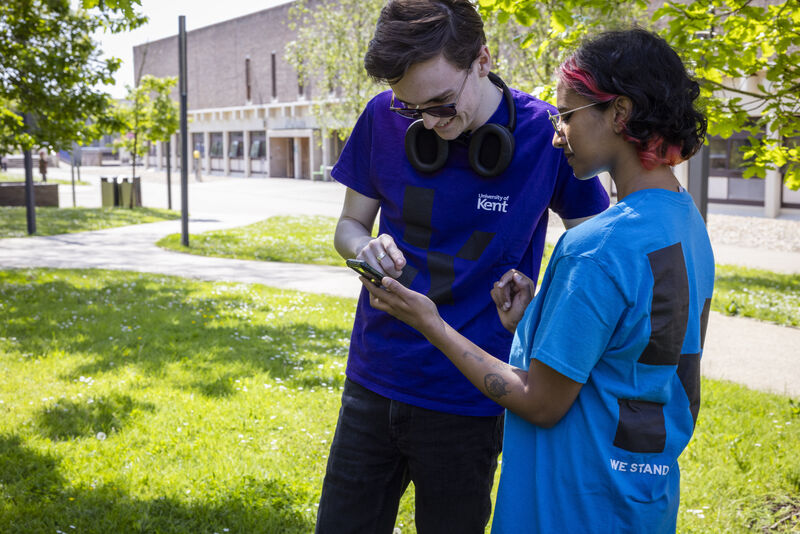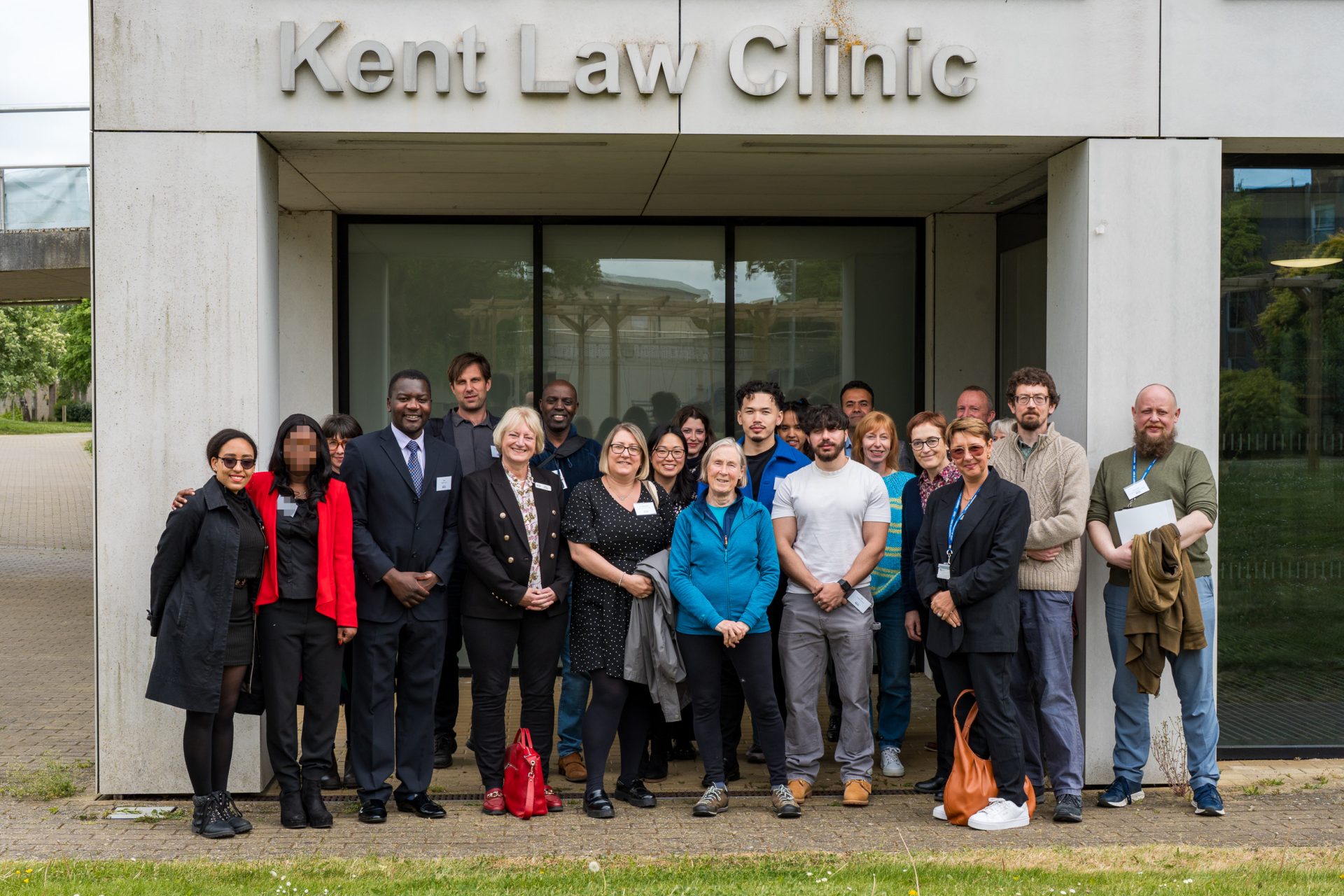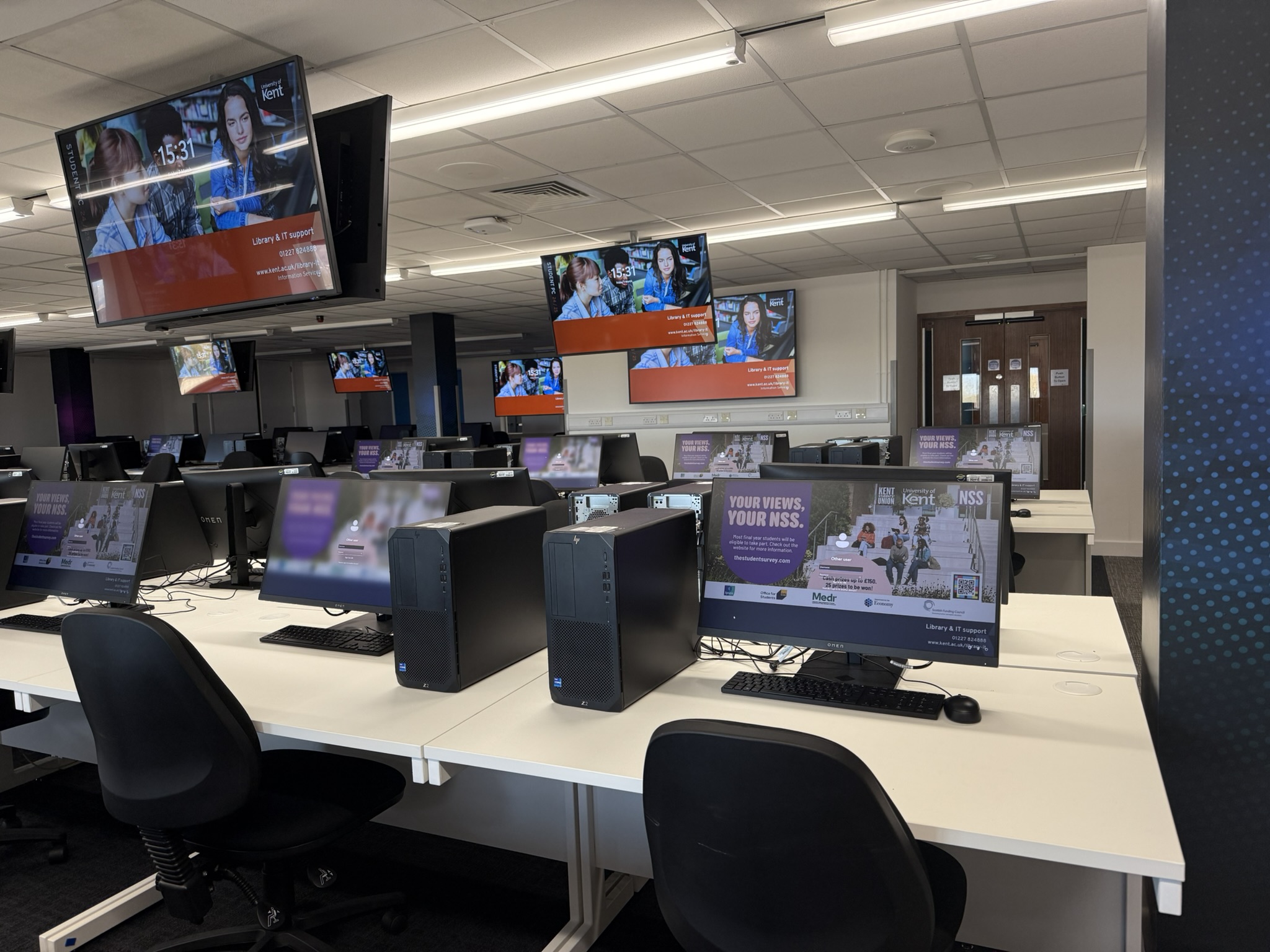Pembroke (Central) Campus
The Deep End
Location: The Student Hub
Opening Times: 09:00 – 17:00 Monday – Friday (23:00 on Wednesdays)
This state-of-the-art bar is located centrally on the Pembroke campus, next to the Drill Hall Library. You can enjoy great value food all day, fair-trade coffee, and drinks! From brunch, pizzas, burgers, milkshakes, to sweet treats – there is something for everyone. There are always lots of fun and relaxing activities taking place here too – click here to look at any events on offer.
The Archibald Hay Mess
Location: The Drill Hall Library
Opening Times: 10:00 – 20:00 (Monday – Thursday), 10:00 – 17:00 (Friday)
The Archibald Hay Mess Café offers a variety of hot and cold drinks, a selection of sandwiches and snacks for you to grab on the go or sit down and take a quick break! Located within The Drill Hall Library (next to Pilkington Building), this café is in the prime location for you to take a break from your studying in the library for a quick coffee break! Hot food is not permitted within the library space and must be consumed within the café only. Click here to look at the other Drill Hall Library services on offer!
Pembroke Café
Location: Pembroke Building
Opening Times: 08:00 – 16:00 (Monday – Friday)
This cosy coffee shop is tucked away in the Pembroke Building on the top level of the campus and offers a range of hot meals, freshly prepared pizza, sandwiches, snacks, and hot and cold drinks – including Starbucks! It’s a great place to grab a well-deserved tea or coffee – why not treat yourself to one of the many cakes and pastries on offer too! There is also a green space located just outside the Pembroke Building and benches where you can sit, relax, and enjoy the sunshine. Please note, this 1is a Greenwich building but accessible to Kent students.
The Venue Café
Location: Pilkington Building
Opening Times: 08:00 – 15:00 (Monday – Friday)
Also known as the Pilkington Café, this is one of the largest of the café spaces in Medway and is located centrally to the Pilkington teaching spaces, only a few minutes’ walk from the library. There is a wide selection of hot meals, sandwiches, snacks, and hot and cold drinks on offer as well as lots of seating space available.
Touchdown Café
Location: Rowan Williams Court
Opening Times: 08:00 – 16:30 (Monday – Thursday), 08:00 – 15:30 (Friday)
Here you can immerse yourself in freshly brewed barista coffee and lots of food options, including a 5-item breakfast! As well as a variety of pre-packaged fair-trade items on offer. Rowan Williams Court is tucked behind the Drill Hall Library along North Road on campus. Please note, this is a Christchurch building but accessible to Kent students.
Oasis Lounge
Location – Medway Building
Lastly, not forgetting your exclusive Kent student Oasis Lounge! Although this is not a campus catering outlet, it is a comfortable space for you if you want to relax with food or play a game of pool to unwind! Here you will find a kitchen equipped with a fridge, hot water, tea and coffee, and a microwave as well as a variety of vending machines on offer. The Oasis Lounge is located by the Medway Building Reception on the ground floor. We also host events in this space, so look out for more information on our upcoming Medway Global Hangout Event in May! There is also a fantastic green space with seating opposite the Medway Building if you fancy soaking up some sunshine!
Dockyard Campus Catering
The Wagon Stop Canteen
Location: Historic Dockyard
Opening Times: 10:00 – 16:00 (Summer), 10:00 – 14:00 (Winter)
Approximately a 15-minute walk from the Pilkington Building, why not take a wander over to the Historic Dockyard and take advantage of free student admission into the Chatham Dockyard (when you present your Kent ID) and soak up some of the local maritime history! As a Kent student, you also get 10% discount in The Wagon Stop Canteen, so stop by for a bite to eat and explore!
The Mess Deck
Location: Historic Dockyard
Opening Times: 10:00-17:00 (Summer), 10:00 – 16:00 (Winter)
Pop by and check out the delicious locally sourced menu, including meals and sandwiches freshly prepared in The Mess Deck. Again, only a short 15-minute walk from the Pilkington Building, you can take advantage of 10% discount here too, as well as your free admission into the Chatham Dockyard. If you fancy sitting outside in the sunshine, you can even bring a picnic and enjoy it in the open green spaces here in the Commissioners Garden (behind Commissioners House) and the Tennis Court Lawn (behind the Clock Tower).
The Hook Lounge
Location: Clocktower Building
Whilst you are exploring the Historic Dockyard, why not pop in and relax at The Hook Lounge. Based on the Historic Dockyard and exclusive for Kent students, here you can find a comfortable room which has a kitchen, hot water, fridge, microwave, and vending machine. The perfect space to relax, have lunch, and soak up the historic views as the HMS Gannet and HMS Ocelot ships are directly outside! The Hook Lounge is located to the left of the Clocktower Building through the main entrance.
Medway Off-Campus Catering
Dockside Waterside
Location – Chatham Maritime
Located only a 10-minute walk from the Medway Pembroke Campus, you can find a large variety of shops and places to eat at the Dockside. From Costa Coffee, KFS, Nando’s, Pizza Hut, Subway, Wagamama, Zizzi, Creams Desert Café and more! If you fancy taking a break off campus, then the Dockside is ideal for a change of scenery and is only a short walk.
Chatham Maritime
Location – Maritime Way
Located just behind the Dockyard, you could take a wander near the waterside, grab some lunch and enjoy sunshine at Ship & Trades restaurant. There is even a handy Co-op shop and Ship and Trades Fish Bar next door if you fancy some fish and chips! If you have finished your exams, why not head over to the Chatham Maritime Food and Drink Festival taking place on 24-26 May, celebrating Maritime heritage and a wide range of locally produced foods.
Pier Quays Catering Outlets & Local Shops
Location – Pier Quays Accommodation
Tucked underneath the Pier Quays Accommodation, you can find a Subway, Dominos, and a handy Tesco Express if you fancy some food on the go! Don’t forget there is also a local ASDA and Lidl nearby, which is a 15-minute walk from the Medway Building on campus and only a 5-minute walk from Pier Quays Accommodation, both great for picking up the essentials!
Medway towns
Don’t forget there is a lot to discover in the Medway towns too. The local towns of Rochester and Chatham have lots of great shops and restaurants as well as beautiful country parks nearby. Rochester offers lots of independent cafes, shops, and restaurants as well as lots of well-known names in Chatham. Find out more about what’s on offer in Medway, there is a lot to explore if you are here for the summer vacation. Looking for a place to eat and drink in Medway? See restaurant recommendations. You can get around Medway by hopping on the local Arriva buses, click here to take a look at the Arriva bus service and timetables. You can take Bus 1 (if you want to travel between Pier Quays, Pembroke and Dockyard campus) and Bus 116 (if you want to travel around Medway, which includes Chatham, Gillingham, and even to Hempstead Valley Shopping Centre). And lastly, don’t forget there are Arriva discounted bus tickets available. #visitmedway









